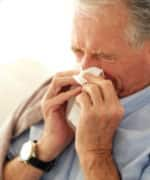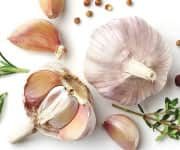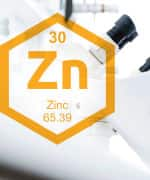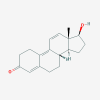The article described people over age 60 who are appalled at being branded “elderly” as it relates to their immunity.The Wall Street Journal recently published an article titled, “Who Are You Calling Elderly?”1
These individuals go to great lengths to prevent degenerative disease by making the right dietary choices, exercising, and even competing in triathlons. They also do not outwardly appear “elderly.”
What they don’t realize is that despite healthy lifestyles, aging is often accompanied by marked declines in immune function.
An example of these immune deficits is reactivation of the chickenpox virus that causes painful shingles outbreaks as people age past 45 years.
A more insidious impact of age-related immune impairment is a higher rate of cancer, severe influenza, and pneumonia .
In the elderly, vaccinations can fail because of inability to generate a robust antibody response.
The realization about immune senescence has been brought to the forefront by the current viral pandemic.
More serious complications and deaths occur in older persons compared to younger people with healthier immune function.
While antiviral treatments are being investigated, immune senescence remains a major impediment.
Most of you already take steps to help protect immune function by supplementing with vitamin D, vitamin C, zinc, melatonin and DHEA .
I describe in this editorial what I have personally done to maintain healthier immunity.
Don’t Wait for Full-Blown Illness to Manifest
People often wait until they are very sick before seeking treatment for a flu or common cold virus. In some cases, treatment delay can be lethal.
I have found enormous personal benefit by taking aggressive action at the onset of the very first cold-flu symptom.
I take strong proactive measures when I have mild symptoms the way some people do after they have suffered days of agonizing flu virus miseries.
My strategy is to not let the virus gain a foothold inside my cells.
Up until now, my approach has succeeded: I have not suffered more than a day of significant cold or flu symptoms since January 1983.
I am going to explain my personal program, but the key point is that you should immediately address the very first symptom of a cold-flu viral infection like it is the most lethal agent you have ever encountered.
This approach may be analogized to dropping a nuclear bomb when conventional weapons might be adequate.
While some people wait until full-blown viral symptoms manifest, I don’t have that option.
Life Extension® is a 24-hour-a-day operation with no room for down time. I can’t call in sick just because a virus has invaded my body.
The box on this page describes antiviral drugs that are effective when administered soon after onset of cold/flu symptoms.
This same strategy may hold true for certain nutrients that must be initiated upon the very first symptom of a common flu or cold virus.
My immediate-attack strategy may also be important before any virus infects too many cells, though the culprit behind the current pandemic is too new to know this yet.
Unleashing the Nuclear Bomb
I maintain an intense schedule with exposure to many people, yet I have gone 37 years without suffering a serious cold-flu viral infection.
On top of that, I have genetically defective bone marrow that killed my brother at age 22 and has caused chronic illnesses in another family member.
While it would be convenient to credit the many supplements I take, it seems more likely that my success avoiding acute illness is a result of the aggressive protocol I initiate as soon as I feel that a viral infection may be taking hold.
Published scientific studies substantiate the benefit of the components of my immune-boosting regimen but there have been no clinical trials to support the efficacy of my entire protocol.
I’ll discuss some of the research that supports my rationale, but here are the drugs, nutrients, and hormones I take as soon as the first symptom of common cold or flu manifests:
-
Cimetidine (Tagamet®) – 800 mg-1,200 mg each day. This drug is sold over the counter in pharmacies to combat heartburn. It has a beneficial side effect of boosting immune function by activating natural killer cells and reducing T-suppressor cells.6 This helps the immune system function more efficiently.
Cimetidine is sold over the counter, but it is wise to read the package insert in case this drug is contraindicated for you—for instance, if you have kidney problems.
For most people, cimetidine provides a powerful immune stimulation that is particularly effective against certain viruses. The brand name of cimetidine is Tagamet®, but the generic (cimetidine) costs less.
- High-allicin garlic extract – 6,000 mg-9,000 mg once or twice a day. This potent form of garlic will cause painful stomach-esophageal burning if you don’t eat food right afterward. The high intake of this kind of garlic will cause you to reek of a strong sulfur odor but saturating the body with this pungent garlic is the objective. Garlic has shown direct viral-killing effects in several published studies.7,8
- DHEA – 50 mg-200 mg early in the day. Doses over 25 mg a day are much higher than normal, but DHEA has shown some benefits in boosting one’s ability to mount a stronger immune response and also protecting against over-active inflammatory cytokine responses that can occur when your immune system hyper-reacts to viral infections.9
- Lactoferrin – 300 mg-1,200 mg a day. This natural constituent of mother’s milk boosts natural killer cell activity and can prevent certain viruses from binding to cell membranes and entering the cell, where they replicate.10
- Zinc acetate lozenges one to two 18.5 mg lozenges every two waking hours. Please be aware that this is a very high dose of zinc and is considered toxic if taken over the long term.11,12 You should only do this for a few days. Zinc lozenges have shown a direct effect of inhibiting the ability of certain cold viruses to latch on to the cells in the back of your throat where they multiply and can descend into your lungs to potentially cause pneumonia.10
- Melatonin – high dose of 10 mg-50 mg at bedtime. Melatonin induces a potent immune response and this high dose can facilitate the deep sleep one often needs to fend off an infection. This dose of melatonin may make you extremely tired, so please only take this before bedtime and do not operate any machinery or vehicles after ingestion.13
- Aged garlic extract – 3,600 mg a day. There are unique immune-boosting compounds in aged garlic that work differently than those found in the high-allicin garlic.14 So I take both aged garlic extract and high-allicin garlic extract when I am concerned about viral infections.
- Whey protein concentrate – 2-4 scoops a day to provide a glutathione boost and can ramp up vital antibody responses.
I take the above doses when I develop any symptom that may signal the beginning of a flu or cold in addition to the supplements I use every day.
My daily personal program probably closely resembles what most of you do, such as taking over 5,000 IU of vitamin D3 to maintain optimal blood levels.
As you might expect, I also take high-potency multi-vitamins, CoQ10, curcumin and other plant extracts, along with several grams of vitamin C, and more.
One-Pill Protection Against Common Flu Viruses
If you contract the flu this year, you might want to initiate a drug called XOFLUZA®.
This new antiviral drug is approved to treat Influenza A and Influenza B with just a single pill that costs around $150.
Some preclinical studies show XOFLUZA® is effective against certain avian viral strains like H7N9 and H5N1.2
XOFLUZA® functions via a different mechanism than Tamiflu®, which is important because some flu viruses have developed resistance to Tamiflu®.3,4
XOFLUZA® is not effective against coronavirus.
Antiviral drugs like XOFLUZA® are effective against common flu virus strains, but only when they are initiated within 24-48 hours of the manifestation of symptoms.5
Garlic’s Unsung Benefits
With all the high-tech medical advances occurring, garlic would appear to be a relic of the past. Yet the scientific literature documents that garlic has powerful effects against certain viruses.
For instance, a study tested one capsule daily, from November through February, of an allicin-containing garlic supplement on a group of 146 people.8 Half the group received the garlic while the unfortunate other half got a placebo. The placebo group suffered 63% more common cold infections compared to the garlic group.
Even more significant, those in the garlic group who did catch a cold only suffered symptoms for an average of 1.52 days compared to 5.01 days for the placebo group. This placebo-controlled study corroborates the benefits I have personally derived by taking much higher doses of high-allicin garlic as soon as cold or flu symptoms present.
The conclusion of the doctors who conducted this garlic study was,
Considering the number of people afflicted with a common cold each year, you would think this would have been the lead news story of the day. Instead, this study has remained buried in a scientific journal while the medical establishment still says,
“An allicin-containing supplement can prevent attack by the common cold virus.”
Ribavirin is a prescription drug that has broad-spectrum antiviral effects.15-21
“there is no cure for the common cold.”
Yet a Chinese study showed that at least in the test tube, garlic is more effective than ribavirin in inhibiting viruses that attack the intestinal tract.22 Life Extension has recommended ribavirin to treat various viral infections since the early 1980s. In this study garlic was shown to be superior.
Aged Garlic Extract
Garlic contains compounds that enhance beneficial proliferation of immune T-cells and function of natural killer (NK) cells.23-26
Aged garlic extract contains little allicin, which is one of the reasons it is sold as “odorless”. An impressive volume of data supports the antiviral and immune-enhancing properties of aged garlic extract.
A randomized, double-blind, placebo-controlled intervention study recruited 120 healthy subjects (60 per group) to determine the effect of 2,560 mg a day of aged garlic extract supplementation on immune cell proliferation and cold and flu symptoms.23
In individuals who consumed an encapsulated aged garlic extract, T-cells and NK-cells showed more robust proliferation, compared to individuals who received placebo.
After 90 days of supplementation, illness diary entries showed that the incidence of colds and flu, a secondary outcome, were not statistically different. However, the group consuming the aged garlic extract was reported to have:
- Reduced severity as noted by a reduction in the number of symptoms reported (21% fewer).
- A reduction in the number of days (by 61%) and incidences (by 58%) on which the subjects functioned sub-optimally.
- A reduction in the number of work/school days missed due to illness (by 58%).
The researchers who conducted this study concluded that the results
For several years, manufacturers of garlic supplements debated as to which form (high-allicin or aged garlic) was most effective.
“suggest that supplementation of the diet with aged garlic extract may enhance immune cell function and that this may be responsible, in part, for reduced severity of colds and flu.”23
I have concluded, after reviewing the studies on the immune properties of garlic, that each form has unique antiviral and/or immune-enhancing properties, which is why I supplement with both forms when cold or flu symptoms manifest.8,14,27-30
Low-cost garlic may be an effective weapon against certain viruses.
The Life-Saving Side Effect of a Heartburn Drug
Tagamet® is the brand name of what used to be the most popular drug to treat heartburn. You’ve likely seen hundreds of commercials on TV for Tagamet®.
Now that it is off patent, we refer to Tagamet® by its generic name “cimetidine.”
A little-known side effect of cimetidine is that it inhibits the over-production of T-suppressor cells.6 In doing so, it boosts immune function by preventing the immune system from prematurely turning itself down.
Cimetidine has shown other immune-modulating effects such as increasing natural killer cell activity and boosting levels of natural immune stimulants interleukin-2 and gamma interferon.31-34 Human studies demonstrate cimetidine’s efficacy against herpes and viral warts.34-38
Cimetidine is safe for most people to take on a limited basis.39 Typical antiviral doses of 800 mg-1,000 mg at night (or 200 mg three times a day and then 400 mg at night) appear to be an effective way to temporarily turn up the immune system.
Cimetidine in 200 mg tablets can be purchased over the counter at pharmacies. The directions in the over-the-counter package insert say that up to 400 mg a day is safe, but some published studies where cimetidine is used as an antiviral agent have used over 1,000 mg a day.40
Mother’s Milk
It is well known that infants obtain protection against certain infections from components contained in mother’s milk. One such component is lactoferrin, which has documented immune-potentiating effects.41-43
Lactoferrin may stimulate macrophages, which in turn may help to induce cell-mediated immunity.42 Although many of the studies are on animals, lactoferrin is naturally present in many mucous membrane secretions in humans, suggesting an inborn human antimicrobial function.10,43
One study showed that lactoferrin inhibits viral infection by interfering with the ability of certain viruses to bind to cell receptor sites.44
This is of unique importance because many viral infections are contracted in the mucous membranes of our nasal passages and then move into our throats and lungs where they infect cells and initiate rapid proliferation.
Immune-Boosting Hormones
Dehydroepiandrosterone (DHEA) and its metabolites have demonstrated immune-enhancing and antiviral effects.45-49
The administration of 50 mg a day of DHEA to nine elderly men who had baseline DHEA levels well below those of young adults resulted in the following immune enhancements compared to placebo:50
- Increase of 29% in the number of B immune cells
- Increase of 62% in B-cell activity
- Increase of 40% in T-cell activity
- Increase of 50% in interleukin 2
- Increase of 22% to 37% in natural killer cell number
- Increase of 45% in natural killer cell activity
One reason that influenza can be lethal to aging people is that their immune systems are weakened. A deficiency in DHEA may be partially responsible for the age-related decline in immune function.51
One study showed that a metabolite of DHEA augmented activation of T-helper cells and protected mice from a lethal influenza viral infection.49
Melatonin’s Immune-Boosting Effects
Melatonin has been specifically shown to decrease viral load and prevent death in mice infected with certain viruses. The conclusion of one melatonin study was:
“The immunomodulatory, antioxidant, and neuroprotective effects of melatonin suggest that this indole must be considered as an additional therapeutic alternative to fight viral diseases.” 52
Another study examined the immune function benefits of melatonin and found that melatonin activated interleukin 2 and gamma interferon which facilitate natural killer cell activity and T-helper cell production.53
Taking higher-dose DHEA in the morning (50 mg-200 mg) and higher-dose melatonin (10 mg-50 mg) before bedtime would appear to be a logical approach when battling a viral infection.
Preventing Viruses from Lodging in Points of Entry
Several published studies show that if zinc lozenges are taken within 24 hours of the onset of common cold symptoms, the severity and duration of cold miseries are diminished.54-57
Rhinoviruses is the medical term for viruses that cause the common cold.
Rhinoviruses attach to cell receptor sites in sinus and throat tissues, become lodged in nose-throat cells, and then replicate out of control.58 By binding to the same cell receptor sites as do cold viruses, zinc can inhibit the ability of rhinoviruses to take hold in the body.
A meta-analysis of the published literature on zinc lozenges was conducted and the conclusion of the report was:
“Clinical trial data support the value of zinc in reducing the duration and severity of symptoms of the common cold when administered within 24 hours of the onset of common cold symptoms. Additional clinical and laboratory evaluations are warranted to further define the role of ionic zinc for the prevention and treatment of the common cold and to elucidate the biochemical mechanisms through which zinc exerts its symptom-relieving effects.”54
The key here is to suck on one or two 18.5 mg zinc acetate (or gluconate) lozenges at the very first symptom of a cold and continue doing so about every two waking hours.
Once rhinoviruses bind to their receptor sites in the nasal tissues and begin replicating, zinc lozenges lose their efficacy. Considering how inexpensive zinc lozenges are, it makes sense to keep them in the medicine cabinet so that they are immediately available if cold symptoms manifest.
While less than 100 mg/day of zinc can improve immune function, zinc should not be consumed in amounts greater than 300 mg/day for more than a day or two, to avoid excessive zinc levels that might suppress immune function.
Lots More to Learn…
Major clinical advances have been made in fields such as cardiology, where sudden heart attack deaths plummeted 50% between the years 1980 to 2014.
The Shingrix® vaccine has been recommended to me by several respected doctors. So I took this vaccine at age 64 to prevent a shingles outbreak that can have immune-damaging effects by exhausting naïve T-cell populations.
Hepatitis C is now largely curable with several different drug options such as Sovaldi®, which was initially priced at $1,000 per pill. To cure hepatitis C viral infections, 84 Sovaldi® pills are usually needed plus ribavirin.
Effective treatments remain elusive for common viruses such as herpes simplex-1, herpes simplex-2, herpes zoster (shingles), Epstein-Barr, cytomegaloviruses, influenza andrhino (common cold) viruses.
What we do know is that younger people with healthy immune systems are less likely to suffer severe effects and death from viral infections.
A “healthy” immune system quickly recognizes a viral invader, mobilizes a coordinated attack, and then “turns off” when its work is done, to avoid damaging healthy tissues.
Failure to “turn off” an over-active immune response is a leading cause of death in elderly persons who suffer bacterial and/or viral infections.
Combat Immune Senescence
In this month’s issue we describe some natural approaches to improve immune function. None of what we publish should be construed as a preventative or treatment for the viral infections plaguing today’s world.
I use these immune-supporting compounds because they have demonstrated varying degrees of efficacy in peer-reviewed published studies.
My hope is to not only ward off flu infections, but also reduce my risk of cancer due to the weakened immune function caused by normal aging and genetic predisposition.
Despite being outwardly healthy, immune senescence often begins by age 50 or 60 years, making us more vulnerable to infectious diseases, malignancies and chronic inflammatory disorders.
Please know that Life Extension’s network of physician-scientists are working around the clock to identify and validate methods to rapidly regenerate immune functionality and we will provide that information to our many supporters.
As I wrote in the opening of this editorial, most of us over age 40-50 years have less-than-optimal immunity. Aggressive measures are urgently needed to restore youthful immune responses.
For longer life,

William Faloon, Co-Founder
Life Extension®
References
- Available at: https://www.wsj.com/...rly-11584457650. Accessed March 30, 2020.
- Available at: https://www.roche.co...2019-06-04b.htm. Accessed March 31, 2020.
- Available at: https://www.uptodate...fluenza-viruses. Accessed April 3, 2020.
- Available at: https://www.cdc.gov/...lresistance.htm. Accessed April 3, 2020.
- Available at: https://www.uptodate...uenza-in-adults. Accessed March 31, 2020.
- Kumar A. Cimetidine: an immunomodulator. DICP. 1990 Mar;24(3):289-95.
- Harris JC, Cottrell SL, Plummer S, et al. Antimicrobial properties of Allium sativum (garlic). Appl Microbiol Biotechnol. 2001 Oct;57(3):282-6.
- Guo NL, Lu DP, Woods GL, et al. Demonstration of the anti-viral activity of garlic extract against human cytomegalovirus in vitro. Chin Med J (Engl). 1993 Feb;106(2):93-6.
- van Vollenhoven RF, Morabito LM, Engleman EG, et al. Treatment of systemic lupus erythematosus with dehydroepiandrosterone: 50 patients treated up to 12 months. J Rheumatol. 1998 Feb;25(2): 285-9.
- Roxas M, Jurenka J. Colds and influenza: a review of diagnosis and conventional, botanical, and nutritional considerations. Altern Med Rev. 2007 Mar;12(1): 25-48.
- Lewis MR, Kokan L. Zinc gluconate: acute ingestion. J Toxicol Clin Toxicol. 1998;36(1-2):99-101.
- Solomons NW. Mild human zinc deficiency produces an imbalance between cell-mediated and humoral immunity. Nutr Rev. 1998 Jan;56(1 Pt 1):27-8.
- Melatonin. Monograph. Altern Med Rev. 2005 Dec;10(4):326-36.
- Kyo E, Uda N, Kasuga S, et al. Immunomodulatory effects of aged garlic extract. J Nutr. 2001 Mar;131(3s):1075s-9s.
- Reichard O, Norkrans G, Fryden A, et al. Randomised, double-blind, placebo-controlled trial of interferon alpha-2b with and without ribavirin for chronic hepatitis C. The Swedish Study Group. Lancet. 1998 Jan 10;351(9096):83-7.
- da Silva LC, Bassit L, Ono-Nita SK, et al. High rate of sustained response to consensus interferon plus ribavirin in chronic hepatitis C patients resistant to alpha-interferon and ribavirin: a pilot study. J Gastroenterol. 2002;37(9):732-6.
- de Ledinghen V, Trimoulet P, Winnock M, et al. Daily or three times per week interferon alpha-2b in combination with ribavirin or interferon alone for the treatment of patients with chronic hepatitis C not responding to previous interferon alone. J Hepatol. 2002 Jun;36(6):819-26.
- Fried MW, Shiffman ML, Reddy KR, et al. Peginterferon alfa-2a plus ribavirin for chronic hepatitis C virus infection. N Engl J Med. 2002 Sep 26;347(13):975-82.
- Galban Garcia E, Vega Sanchez H, Gra Oramas B, et al. Role of ribavirin in the treatment of chronic hepatitis B. Gastroenterol Hepatol. 2000 Apr;23(4):165-9.
- Kumada H. Chronic hepatitis C. Nihon Rinsho. 2002 Jan;60(1):182-8.
- Murphy ME, Kariwa H, Mizutani T, et al. In vitro antiviral activity of lactoferrin and ribavirin upon hantavirus. Arch Virol. 2000;145(8):1571-82.
- Luo R, Dong Y, Fang F. The experimental study of the anti-enterovirus effects of drugs in vitro. Zhonghua Shi Yan He Lin Chuang Bing Du Xue Za Zhi. 2001 Jun;15(2):135-8.
- Nantz MP, Rowe CA, Muller CE, et al. Supplementation with aged garlic extract improves both NK and gammadelta-T cell function and reduces the severity of cold and flu symptoms: a randomized, double-blind, placebo-controlled nutrition intervention. Clin Nutr. 2012 Jun;31(3):337-44.
- Percival SS. Aged Garlic Extract Modifies Human Immunity. J Nutr. 2016 Feb;146(2):433s-6s.
- Xu C, Mathews AE, Rodrigues C, et al. Aged garlic extract supplementation modifies inflammation and immunity of adults with obesity: A randomized, double-blind, placebo-controlled clinical trial. Clin Nutr ESPEN. 2018 Apr;24:148-55.
- Ishikawa H, Saeki T, Otani T, et al. Aged garlic extract prevents a decline of NK cell number and activity in patients with advanced cancer. J Nutr. 2006 Mar;136(3 Suppl):816s-20s.
- Liu ZF, Fang F, Dong YS, et al. Experimental study on the prevention and treatment of murine cytomegalovirus hepatitis by using allitridin. Antiviral Res. 2004 Feb;61(2):125-8.
- Josling P. Preventing the common cold with a garlic supplement: a double-blind, placebo-controlled survey. Adv Ther. 2001 Jul-Aug;18(4):189-93.
- Weber ND, Andersen DO, North JA, et al. In vitro virucidal effects of Allium sativum (garlic) extract and compounds. Planta Med. 1992 Oct;58(5):417-23.
- Tsai Y, Cole LL, Davis LE, et al. Antiviral Properties of Garlic: In vitro Effects on Influenza B, Herpes Simplex and Coxsackie Viruses. Planta Med. 1985 Oct;51(5):460-1.
- Bourinbaiar AS, Fruhstorfer EC. The effect of histamine type 2 receptor antagonists on human immunodeficiency virus (HIV) replication: identification of a new class of antiviral agents. Life Sci. 1996;59(23):PL 365-70.
- Kapinska-Mrowiecka M, Turowski G. [Efficacy of cimetidine in treatment of Herpes zoster in the first 5 days from the moment of disease manifestation]. Pol Tyg Lek. 1996 Jun;51(23-26):338-9.
- Kabuta H, Yamamoto S, Shingu M. The effect of cimetidine on survival of mice infected with herpes simplex virus type 2, murine encephalomyelitis virus and vesicular stomatitis virus infections. Kurume Med J. 1989;36(3):95-9.
- Mitsuishi T, Iida K, Kawana S. Cimetidine treatment for viral warts enhances IL-2 and IFN-gamma expression but not IL-18 expression in lesional skin. Eur J Dermatol. 2003 Sep-Oct;13(5):445-8.
- Gooptu C, Higgins CR, James MP. Treatment of viral warts with cimetidine: an open-label study. Clin Exp Dermatol. 2000 May;25(3):183-5.
- Glass AT, Solomon BA. Cimetidine therapy for recalcitrant warts in adults. Arch Dermatol. 1996 Jun;132(6):680-2.
- Shields CL, Lally MR, Singh AD, et al. Oral cimetidine (Tagamet) for recalcitrant, diffuse conjunctival papillomatosis. Am J Ophthalmol. 1999 Sep;128(3):362-4.
- Ronna T, Lebwohl M. Cimetidine therapy for plantar warts. J Am Podiatr Med Assoc. 1995 Nov;85(11):717-8.
- Krenzelok EP, Litovitz T, Lippold KP, et al. Cimetidine toxicity: an assessment of 881 cases. Ann Emerg Med. 1987 Nov;16(11):1217-21.
- Choi YS, Hann SK, Park YK. The effect of cimetidine on verruca plana juvenilis: clinical trials in six patients. J Dermatol. 1993 Aug;20(8):497-500.
- Shin K, Wakabayashi H, Yamauchi K, et al. Effects of orally administered bovine lactoferrin and lactoperoxidase on influenza virus infection in mice. J Med Microbiol. 2005 Aug;54(Pt 8):717-23.
- Actor JK, Hwang SA, Olsen M, et al. Lactoferrin immunomodulation of DTH response in mice. Int Immunopharmacol. 2002 Mar;2(4):475-86.
- Nishiya K, Horwitz DA. Contrasting effects of lactoferrin on human lymphocyte and monocyte natural killer activity and antibody-dependent cell-mediated cytotoxicity. J Immunol. 1982 Dec;129(6): 2519-23.
- Waarts BL, Aneke OJ, Smit JM, et al. Antiviral activity of human lactoferrin: inhibition of alphavirus interaction with heparan sulfate. Virology. 2005 Mar 15;333(2):284-92.
- Corsini E, Lucchi L, Meroni M, et al. In vivo dehydroepiandrosterone restores age-associated defects in the protein kinase C signal transduction pathway and related functional responses. J Immunol. 2002 Feb 15;168(4):1753-8.
- Degelau J, Guay D, Hallgren H. The effect of DHEAS on influenza vaccination in aging adults. J Am Geriatr Soc. 1997 Jun;45(6):747-51.
- Danenberg HD, Ben-Yehuda A, Zakay-Rones Z, et al. Dehydroepiandrosterone enhances influenza immunization in aged mice. Ann N Y Acad Sci. 1995 Dec 29;774:297-9.
- Danenberg HD, Ben-Yehuda A, Zakay-Rones Z, et al. Dehydroepiandrosterone (DHEA) treatment reverses the impaired immune response of old mice to influenza vaccination and protects from influenza infection. Vaccine. 1995;13(15):1445-8.
- Padgett DA, Loria RM, Sheridan JF. Endocrine regulation of the immune response to influenza virus infection with a metabolite of DHEA-androstenediol. J Neuroimmunol. 1997 Sep;78(1-2):203-11.
- Khorram O, Vu L, Yen SS. Activation of immune function by dehydroepiandrosterone (DHEA) in age-advanced men. J Gerontol A Biol Sci Med Sci. 1997 Jan;52(1):M1-7.
- Fulop T, Jr., Wagner JR, Khalil A, et al. Relationship between the response to influenza vaccination and the nutritional status in institutionalized elderly subjects. J Gerontol A Biol Sci Med Sci. 1999 Feb;54(2):M59-64.
- Bonilla E, Valero N, Chacin-Bonilla L, et al. Melatonin and viral infections. J Pineal Res. 2004 Mar;36(2):73-9.
- Garcia-Maurino S, Gonzalez-Haba MG, Calvo JR, et al. Melatonin enhances IL-2, IL-6, and IFN-gamma production by human circulating CD4+ cells: a possible nuclear receptor-mediated mechanism involving T helper type 1 lymphocytes and monocytes. J Immunol. 1997 Jul 15;159(2):574-81.
- Hulisz D. Efficacy of zinc against common cold viruses: an overview. J Am Pharm Assoc (2003). 2004 Sep-Oct;44(5):594-603.
- Prasad AS, Fitzgerald JT, Bao B, et al. Duration of symptoms and plasma cytokine levels in patients with the common cold treated with zinc acetate. A randomized, double-blind, placebo-controlled trial. Ann Intern Med. 2000 Aug 15;133(4):245-52.
- Marshall S. Zinc gluconate and the common cold. Review of randomized controlled trials. Can Fam Physician. 1998 May;44:1037-42.
- Mossad SB, Macknin ML, Medendorp SV, et al. Zinc gluconate lozenges for treating the common cold. A randomized, double-blind, placebo-controlled study. Ann Intern Med. 1996 Jul 15;125(2):81-8.
- Gwaltney JM. Clinical significance and pathogenesis of viral respiratory infections. Am J Med. 2002 Apr 22;112 Suppl 6A:13S-8S.
-






















































